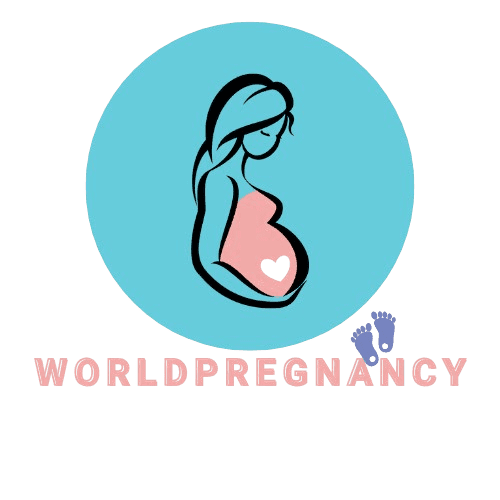Why Professional Postpartum Care Matters for New Parents
Professional postpartum care provides vital support for mothers after childbirth, including medical monitoring, breastfeeding help, and mental health services. Find the best postpartum care options today.
The Unseen Challenges of Postpartum Recovery
Bringing a new life into the world is a miraculous experience, but the journey doesn’t end at childbirth. The postpartum period—often called the “fourth trimester”—is a critical phase where new mothers need physical, emotional, and medical support. Yet, many women struggle silently, unaware of the importance of professional postpartum care.
Imagine this: A new mother, exhausted from labor, is suddenly responsible for a fragile newborn while her own body is healing. She battles sleepless nights, breastfeeding difficulties, and unexpected mood swings—yet society expects her to “bounce back” immediately. This unrealistic expectation leaves many women feeling isolated and overwhelmed.
In this guide, we’ll explore why professional postpartum care is essential, what it includes, and how it can transform the recovery experience for new parents.
The Critical Role of Professional Postpartum Care
1. Medical Monitoring for Mother & Baby
After childbirth, a woman’s body undergoes significant changes. Professional postpartum care ensures:
Maternal Health Checks: Monitoring blood pressure, wound healing (C-section or episiotomy), and detecting complications like infections or postpartum hemorrhage.
Newborn Health Assessments: Tracking weight gain, jaundice levels, and feeding patterns to ensure healthy development.
Did You Know?
According to the WHO, nearly 40% of postpartum women do not receive adequate postnatal care, increasing risks of complications.
2. Emotional & Mental Health Support
Postpartum depression (PPD) affects 1 in 7 women, yet many go undiagnosed. Professional care includes:
Screening for PPD and anxiety
Counseling and therapy referrals
Support groups for new mothers
Real-Life Story:
Sarah, a first-time mom, felt overwhelming sadness after delivery but assumed it was “normal.” A postpartum care specialist recognized her symptoms and connected her with a therapist—saving her from prolonged suffering.
3. Breastfeeding & Newborn Care Guidance
Many mothers struggle with breastfeeding due to:
Latching difficulties
Low milk supply
Painful engorgement
A lactation consultant can provide hands-on support, ensuring both mother and baby thrive.
4. Physical Recovery & Pain Management
Common postpartum challenges include:
Perineal soreness
C-section scar healing
Pelvic floor weakness
Post-birth hormonal fluctuations
A postpartum doula or physiotherapist can guide recovery through safe exercises and pain-relief techniques.
5. Transition to Parenthood Support
Professional caregivers help parents:
Establish newborn sleep routines
Manage postpartum nutrition
Navigate relationship changes
Who Provides Professional Postpartum Care? A Complete Guide to Your Support Team
Bringing a new baby home is exciting but overwhelming. You don’t have to do it alone! A team of trained professionals exists solely to support you during the postpartum period. Here’s exactly who they are and how they can help:
1. OB/GYNs & Midwives: Your Medical Guardians
What They Do:
Monitor your physical recovery (checking C-section wounds/tears)
Address complications (postpartum hemorrhage, infections)
Provide family planning guidance
When to See Them:
First visit within 2-3 weeks postpartum
More frequently if high-risk pregnancy
Pro Tip: Many women transition from OB to primary care after 6 weeks – ask for referrals!
2. Lactation Consultants (IBCLCs): Breastfeeding Experts
Services Include:
Painful latch solutions
Low milk supply strategies
Pumping guidance for working moms
Did You Know? Most insurance plans cover 3-5 consultations – always check your benefits!
When to Call: At the first sign of nursing difficulties (don’t wait!)
3. Postpartum Doulas: The Ultimate Support System
How They Help:
Overnight newborn care (so you can sleep)
Light housekeeping & meal prep
Emotional support without judgment
Cost: $25-$50/hour but some Medicaid programs now cover this
Real Mom Advice: “Our doula taught us swaddling tricks we still use at 6 months!”
4. Mental Health Specialists: Your Emotional First Responders
Warning Signs Needing Professional Help:
Crying daily for >2 weeks
Thoughts of harming yourself/baby
Extreme anxiety about infant’s health
Types of Support:
Psychiatrists (can prescribe medication)
Therapists specializing in perinatal mood disorders
Critical Stat: 75% of PPD cases go untreated – don’t be part of this statistic!
5. Pediatricians: Your Baby’s Health Advocates
Postpartum Timeline:
First visit 2-3 days after discharge
Weekly weight checks if breastfeeding
Developmental screenings at 1 month
Questions to Ask:
“Is this amount of spit-up normal?”
“When should we start tummy time?”
Bonus: Often Overlooked Specialists
Pelvic Floor Physiotherapists: For bladder leaks or pain during sex
Postpartum Nutritionists: To rebuild nutrient stores
Sleep Consultants: After the 4th trimester (safe sleep training)
Pro Planning Tip: Start interviewing providers during your 3rd trimester. The best specialists book up fast!
FAQs About Professional Postpartum Care
1. What is the 5-5-5 postpartum rule?
A traditional recovery method suggesting:
5 days in bed (rest)
5 days on the bed (light activity)
5 days near the bed (gradual movement)
2. How long should postpartum care last?
Ideally, 6-12 weeks, but some women benefit from extended support.
3. Is postpartum care only for first-time moms?
No! Every pregnancy is different, and even experienced mothers need support.
4. Can postpartum care prevent complications?
Yes! Early detection of issues (e.g., infections, PPD) leads to better outcomes.
5. How do I find postpartum care providers?
Ask your OB/GYN or hospital for referrals
Search for certified postpartum doulas
Check local parenting groups
Conclusion: Investing in Postpartum Care is Investing in Motherhood
The postpartum period shapes a mother’s long-term health and her baby’s development. Professional postpartum care isn’t a luxury—it’s a necessity. By seeking expert support, new parents can:
✔ Heal safely
✔ Bond confidently with their baby
✔ Reduce risks of PPD and complications
If you or a loved one is expecting, start planning postpartum care today. Your future self will thank you.
